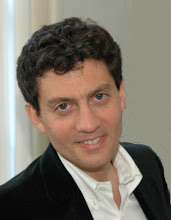
Maslow’s hierarchy of needs has taught us a lot about the basic things we require. There are the necessities like bread…water but what about less tangible needs and how do these needs express themselves in our organizations?
My wife is a child and family therapist working with families affected by adoption. Like bread and water children subsist on the connections they form; without these their development becomes threatened. In her field they term this waltz of intimacy attachment. We know it when we see it…imagine a child on a beach with an approaching rough wave – and a mother’s securing hand is ready for the taking without a child searching or asking for it. This attachment…this bond becomes a sort of unconscious part of our DNA driving the fruition and articulation of relationships.
Maybe it boils down this…are we available and responsive to one another?
Watch this 2 minute video as a conversation starter...
Organizational Needs from Terrence Gargiulo on Vimeo.
So do you know what resources your organization needs to survive and thrive? And what really sustains people in organizations?
Are you interested in learning more about these story-based communication skills? Here are some additional resources:
1. Journal Article - "Strategic Use of Stories"
2. eBook of Self-development Exercises (for individuals & groups)
3. Award winning Assessment Instrument for measuring story-based communication skills
4. Sample Chapter from Once Upon a Time: Using Story-based Activities to Develop Breakthrough Communication Skills - book of group process/experiential learning activities mapped to the nine story-based communication skills
Are you interested in learning more about these story-based communication skills? Here are some additional resources:
1. Journal Article - "Strategic Use of Stories"
2. eBook of Self-development Exercises (for individuals & groups)
3. Award winning Assessment Instrument for measuring story-based communication skills
4. Sample Chapter from Once Upon a Time: Using Story-based Activities to Develop Breakthrough Communication Skills - book of group process/experiential learning activities mapped to the nine story-based communication skills
Now please sure to leave your thoughts, ideas and reactions to enrich this virtual campfire for others!



